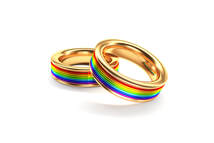Choosing a CelebrantChoosing a Marriage Celebrant is an important decision and you need to feel comfortable with the person who will conduct the ceremony when you "tie the knot". You should meet your potential Celebrant before making that decision to ensure that they are approachable and will make every effort to listen to your ideas, dreams and requests and guide you through the process of incorporating them into a memorable and unique ceremony. Your Celebrant should offer you several samples of different styles of ceremonies, and assist you with readings, writing personal vows if you so desire, rituals, and ideas about how to include special friends or family.
That's why I offer a free confidential meeting before you make your decision, so you can get a 'feel' for me and my style. There will be no obligation to proceed, and certainly no pressure to make a decision on-the-spot. What to expect from your celebrantHere is what you can expect from me, and what will be included in every wedding package:
Who can marry in Australia?
According to the Australian Marriage Act, marriage in Australia is defined as the union of two people, to the exclusion of all others, voluntarily entered into for life. Both parties must be over the age of 18 (under certain circumstances a magistrate or judge may give permission for a marriage if one party is under 18, but over 16, but not both parties). One month's notice is required to be given by lodging a Notice of Intended Marriage with a celebrant at least one month before the wedding. Neither party is required to be an Australian citizen or permanant resident, however marrying in Australia does not guarantee that an application for residency will be approved.
|
Planning to get marriedThings to think aboutSome things to consider when planning your wedding ceremony:
Documents you may need
|